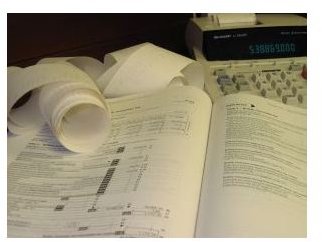When is Tax Day? It Isn't Always April 15 & in 2012 It's Later
For the majority of taxpayers, April 15 is the date ingrained in our heads as traditionally tax day. This day marks the due date for filing a federal income tax return and the deadline for paying any owed income taxes for the previous year. If unable to file a return or make the required payments, a taxpayer may also file an extension request with the Internal Revenue Service (IRS) by April 15th to extend the date that his taxes are due. The IRS allows a few exceptions that affect the April 15th tax filing deadline date. These exceptions occur when April 15th does not fall on a weekday, or when the date is a holiday accepted by the IRS.
How is Tax Day Determined
When April 15 falls on a weekend or a holiday, tax day is the day following the holiday or the first Monday following April 15th. In 2012, tax day is April 17 because the 15th is a Sunday and the IRS considers the celebration of the District of Columbia’s Emancipation Day on Monday April 16th as a federal holiday. Income tax returns for individual taxpayers and all filing extension requests are due for the 2011 tax filing year on Tuesday, April 17, 2012. Failure to post-mark returns and payments by this date will result in fines and penalties by the IRS.
Additional Tax Days
Business owners and self-employed individuals have additional tax days with which to contend. These tax-payers must follow the April 15th guidelines, but they must also adhere to three other tax days throughout the year when estimated tax payments for the current year are due. These estimated payment tax days are April 15, June 15, September 15 and January 15. (Note that the fourth quarter Estimated Tax payments due on January 15 may be skipped as long as you file your return and pay any balance owed to the IRS, in full, no later than January 31, 2012.)
The estimated tax payments due on these days are for the current year, so on April 15th, if you must pay estimated taxes, your first quarter of the current year payment is due in addition to your tax filing and payments for the previous year. Tax payers must pay estimated tax payments only when the individual does not have an employer deducting tax withholding payments from regular paychecks, or when the payments deducted do not meet the tax obligation at the end of the year. Estimated tax payments are not typical and are not taxes that everyone is required to pay. Check with your tax advisor if you run a small business, or have additional income sources that are not paid to you via a paycheck that withholds federal income tax.
Tax Day for Extended Tax Returns
If a taxpayer requests and files an extension request by April 17, the new deadline is traditionally October 15. However, the same exceptions and rules for the April 15th deadline apply to the October 15th deadline as well. If October 15th falls on a holiday or weekend, the due date must be adjusted by the IRS. However, as that does not apply this year, individual tax returns with granted extensions are due on October 15, 2012.
To avoid interest and penalties levied by the IRS, you must always pay your taxes on or before the tax due date. So, when is tax day? Your best bet is to plan for April 15th each year to be safe.
Resources
IRS.gov Website - IR-2012-1, Jan. 4, 2012 - IRS Kicks Off 2012 Tax Season with Deadline Extended to April 17
About.com - Income Tax Deadlines: Critical IRS Deadlines in the Year 2012
